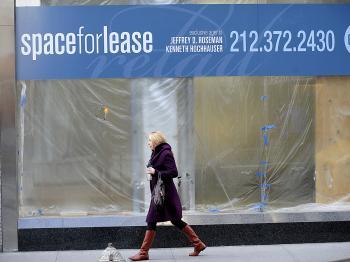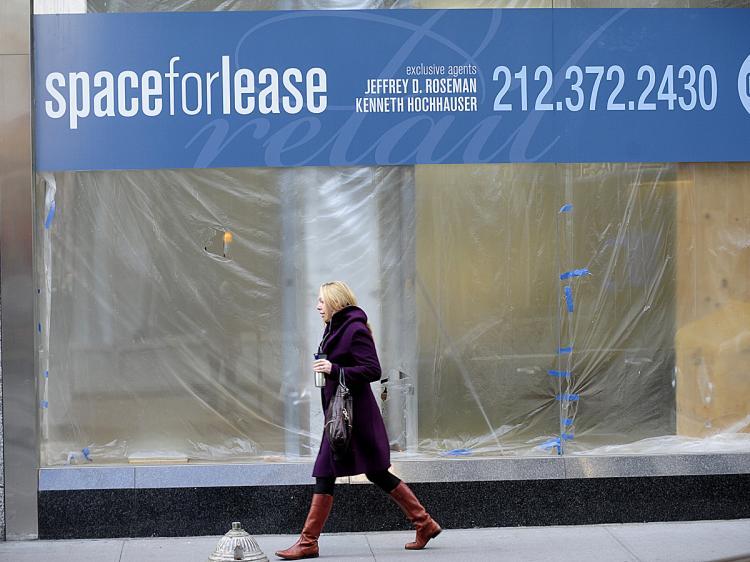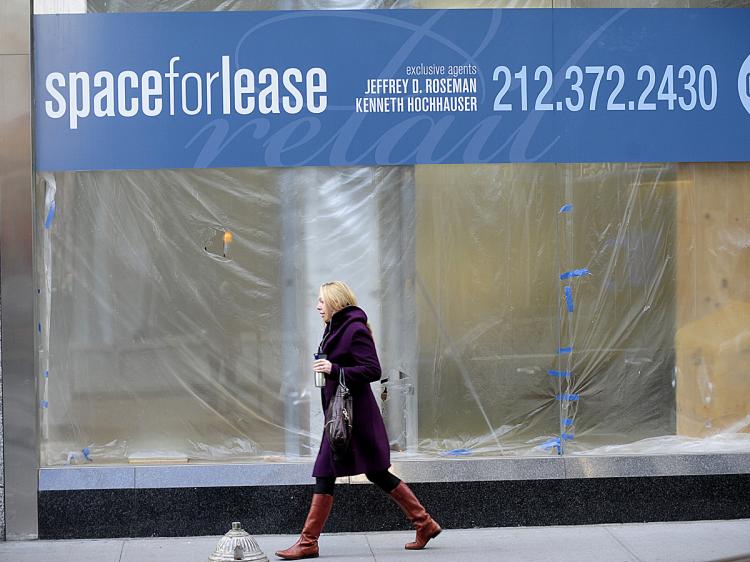NEW YORK—Navigating the landmines of distressed real estate investing can be a frustrating process, but now is the time to gear up for some big deals.
Panel members at a recent Golden Networking event agreed that one-in-a-generation opportunities will begin to rise from the ashes and competition will be hot.
Craig Schiffer, partner of Sevara Partners, a company that helps distressed businesses, funds, and their stakeholders, said there is a “ton” of capital waiting to be put to work.
“Lack of leverage is a problem,” he said. “But lack of product is a bigger problem.”
People are just not able to access the deals yet, Schiffer said. “The smart real estate guys are trying to get in control of the asset.”
Something that he says will take a lot of unraveling to get to. For example the collapse of Silverton Bank in Georgia, the largest failure in the state’s history is set to have almost half a billion in assets auctioned off by the Federal Deposit Insurance Corp. (FDIC) next month.
The auction, which includes a loan to build a W Hotel in Atlanta, may trigger writedowns that weaken lenders nationwide, according to a report by Bloomberg.
The Silverton sell-off is hotly contested, said Schiffer, but it’s a complicated, slow process.
The banking system simply cannot handle the losses it is currently facing, he said.
“People gave up control of investment to a set of rules,” he said. “Which seemed to be great until the rules blew up. … You look at some of the documents and say ‘I can’t believe someone did this.’”
Close to 3,000 banks are currently classified as having a risky concentration of commercial real estate loans, according to a recent report by the Congressional Oversight Panel (COP). All of them are small to mid-sized banks, already weakened by the financial crisis.
Property values have fallen 40 percent on average, and banks are unwilling to refinance; many wanting a lower loan-to-value ratio, which will trigger lot of foreclosures.
“Some loans were flat-out reckless when they were made and never should have been financed,” COP chair Elizabeth Warren said. Banks could suffer losses of up to $200 billion to $300 billion, the report said.
About $1.4 trillion in commercial real estate loans are due for refinancing between now and 2014.
Matthew Baron, principal of the Simon Development Group, a company that holds mostly multifamily homes, said his company has not bought anything in the last two years.
Baron was also a panelist at the distressed investing forum. The bid-to-value ratio is still not quite right, Baron said, and construction financing has all but dried up.
“Business got away from real estate and almost went into a trading market,” he said.
No one wants to sell right now unless they absolutely have to, and many of the big money players don’t want to buy yet because they are waiting for the busted deals.
Class A office rentals have stopped falling, Schiffer said, but the amount of sub-leases on the market is distorting the figures as sub-leases are not counted in the statistics. The sub-leases are significantly cheaper, placing even greater pressure on the empty space.
LibertyPointe Bank was the first New York bank to fail and the 27th FDIC-insured one to fail this year. The bank was handed to the FDIC on March 11. As of Dec. 31, 2009, LibertyPointe Bank had approximately $209.7 million in total assets and $209.5 million in total deposits.
The FDIC estimates that the cost to the Deposit Insurance Fund (DIF) will be $24.8 million.
Panel members at a recent Golden Networking event agreed that one-in-a-generation opportunities will begin to rise from the ashes and competition will be hot.
Craig Schiffer, partner of Sevara Partners, a company that helps distressed businesses, funds, and their stakeholders, said there is a “ton” of capital waiting to be put to work.
“Lack of leverage is a problem,” he said. “But lack of product is a bigger problem.”
People are just not able to access the deals yet, Schiffer said. “The smart real estate guys are trying to get in control of the asset.”
Something that he says will take a lot of unraveling to get to. For example the collapse of Silverton Bank in Georgia, the largest failure in the state’s history is set to have almost half a billion in assets auctioned off by the Federal Deposit Insurance Corp. (FDIC) next month.
The auction, which includes a loan to build a W Hotel in Atlanta, may trigger writedowns that weaken lenders nationwide, according to a report by Bloomberg.
The Silverton sell-off is hotly contested, said Schiffer, but it’s a complicated, slow process.
The banking system simply cannot handle the losses it is currently facing, he said.
“People gave up control of investment to a set of rules,” he said. “Which seemed to be great until the rules blew up. … You look at some of the documents and say ‘I can’t believe someone did this.’”
Close to 3,000 banks are currently classified as having a risky concentration of commercial real estate loans, according to a recent report by the Congressional Oversight Panel (COP). All of them are small to mid-sized banks, already weakened by the financial crisis.
Property values have fallen 40 percent on average, and banks are unwilling to refinance; many wanting a lower loan-to-value ratio, which will trigger lot of foreclosures.
“Some loans were flat-out reckless when they were made and never should have been financed,” COP chair Elizabeth Warren said. Banks could suffer losses of up to $200 billion to $300 billion, the report said.
About $1.4 trillion in commercial real estate loans are due for refinancing between now and 2014.
Schiffer said a lot of the FDIC sales will only be open to banks, but that, over time, “buyers and investors will need to seize back control.”
The Waiting Game
Matthew Baron, principal of the Simon Development Group, a company that holds mostly multifamily homes, said his company has not bought anything in the last two years.
Baron was also a panelist at the distressed investing forum. The bid-to-value ratio is still not quite right, Baron said, and construction financing has all but dried up.
“Business got away from real estate and almost went into a trading market,” he said.
No one wants to sell right now unless they absolutely have to, and many of the big money players don’t want to buy yet because they are waiting for the busted deals.
Office Woes
Class A office rentals have stopped falling, Schiffer said, but the amount of sub-leases on the market is distorting the figures as sub-leases are not counted in the statistics. The sub-leases are significantly cheaper, placing even greater pressure on the empty space.
New York Bank Failures
LibertyPointe Bank was the first New York bank to fail and the 27th FDIC-insured one to fail this year. The bank was handed to the FDIC on March 11. As of Dec. 31, 2009, LibertyPointe Bank had approximately $209.7 million in total assets and $209.5 million in total deposits.
The FDIC estimates that the cost to the Deposit Insurance Fund (DIF) will be $24.8 million.







